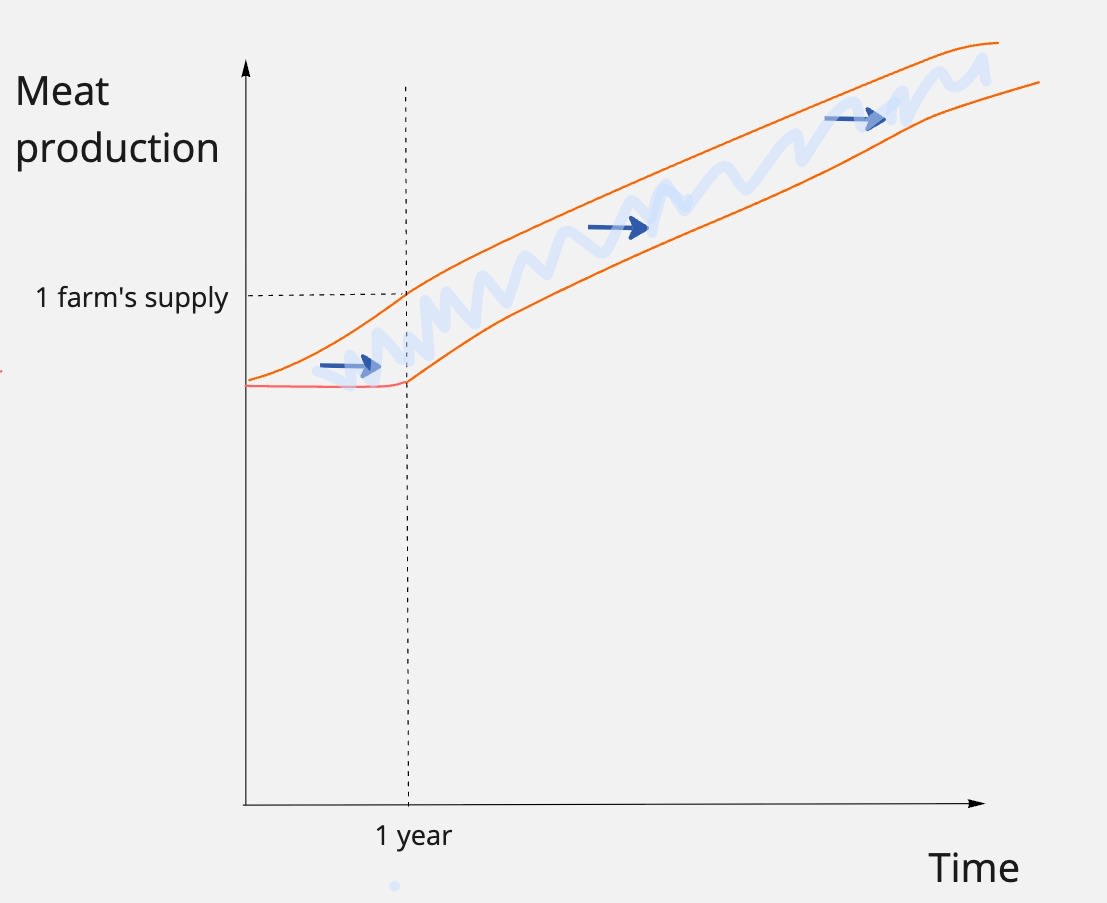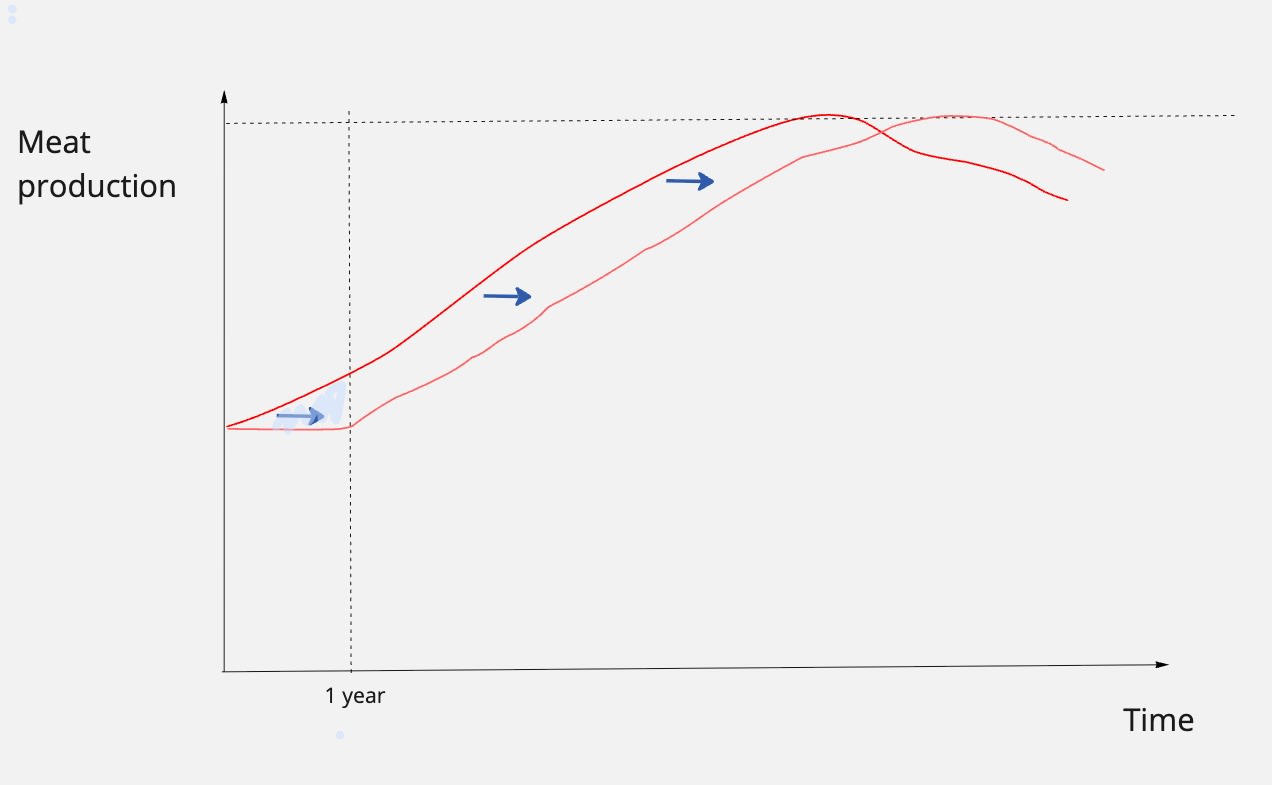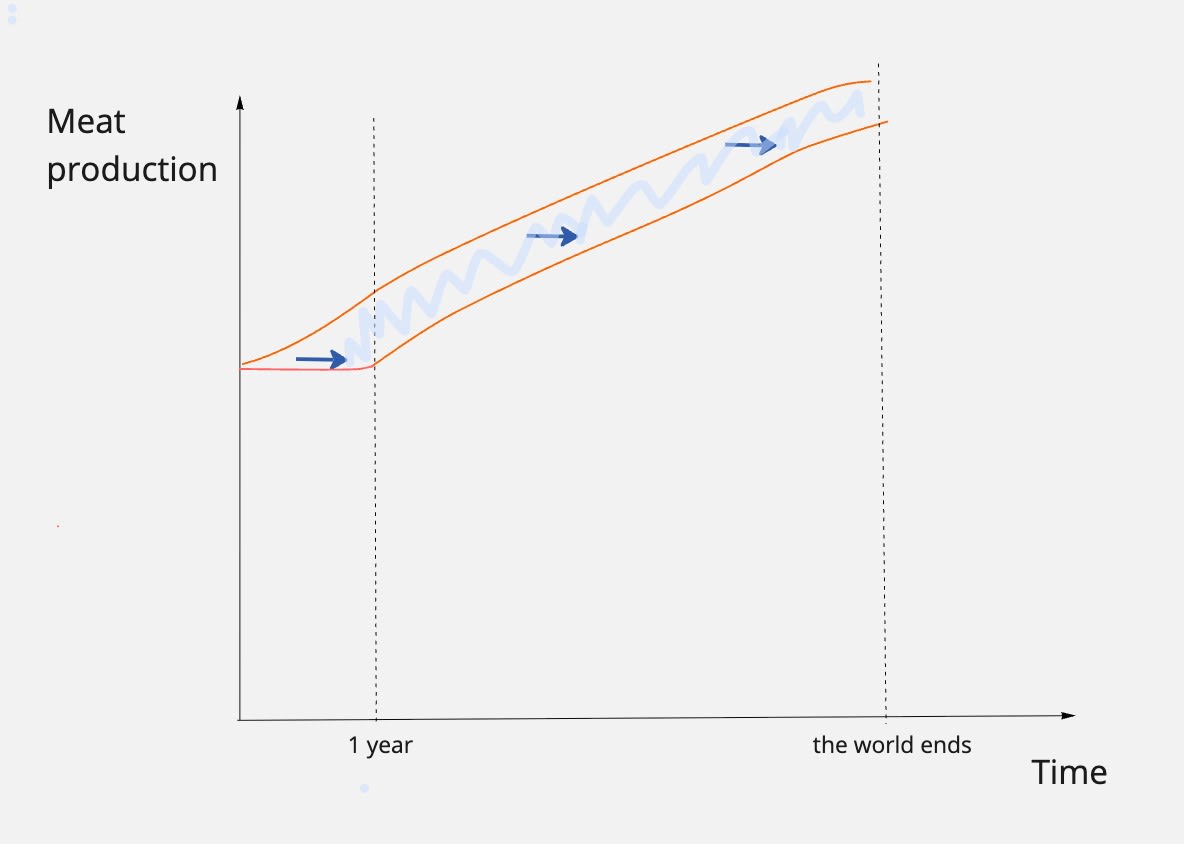JamesÖz 🔸
Bio
Currently grantmaking in animal advocacy, at Mobius. I was previously doing social movement and protest-related research at Social Change Lab, an EA-aligned research organisation I've founded.
Previously, I completed the 2021 Charity Entrepreneurship Incubation Program. Before that, I was in the Strategy team at Extinction Rebellion UK, working on movement building for animal advocacy and climate change.
My blog (often EA related content)
Feel free to reach out on james.ozden [at] hotmail.com or see a bit more about me here
Posts 39
Comments274
The social movements that worked had reasons they worked. The structure of the problem, the allies they were likely to find, and the enemies they were likely to have resulted in the particular strategies they chose working. Similarly for the social movements which failed. These are reasons you can & should learn from, and your ability to look at those reasons is the largest order effect here.
I take the point about being too humble but I'm not sure I fully agree with this bit above! Specifically, I think there are some random factors around luck, personal connections and timing that play a big role. For example, the founders of Extinction Rebellion tried some very similar campaigns a year before Extinction Rebellion launched, with no huge success. Then, a year later, Extinction Rebellion exploded globally. Basically, I also think you can do everything "right" but still not succeed. That said, doing certain things do definitely increases your chances of success.
Throwing soup at van gogh paintings have none of these attributes, so it is counter-productive.
We have some research coming out soon on this, and interestingly, there doesn't seem to be a big negative impact on public opinion if a protest is more illogical (e.g. it's hard for observers to connect the actions of the protest with the goals of the group). The main driver seems to be how disruptive the protest is (e.g. blocking oil depots seems to have comparable effects to throwing soup) although the analysis here is still to be finalised.
Very cool work, thanks Saulius & Nuno for doing it and Anima for commissioning!
I'm particularly interested in the stopping new factory farms campaign and am keen to understand how you think about this. I drew some very rough graphs to help me get my head around this and curious if you are modelling this in a similar way. I'll leave aside the impact on the price of meat, although, I anticipate there may be some small increase when supply is more constrained.
Specifically, you note that you estimate that this will delay farms by, on average, around approx. 7 months. I'll just assume this is 1 year for the sake of simplicity so this may look like this:

To describe what I'm thinking: the production of meat is essentially shifted to the right by 1 year, but follows a pretty similar upward trajectory (although I don't think the trajectory matters too much). Therefore the difference in animal suffering (assuming that's the same as meat production) is the difference in areas under the curve, shown by the beautifully scribbled light blue area.
However, I think this only holds if you think that there will come a time in the future when meat production will start going down. If you think it will have the same total peak and trajectory in both cases, then all you are doing is having a very similar amount of meat production/animal suffering, just delayed by a year. As seen by the small light blue area below, it makes sense there would be some small impact on animals.

But, for example, if you think the world is going to end or there will be some factor (e.g. very tasty and cheap cultivated meat) that causes meat production to decrease in a given year, then this will have counterfactually reduced animal suffering by reducing the height of the meat production peak, as seen below.


Is this roughly how you're also thinking about this? I would be curious for an economist to weigh in also / look into this further as I'm sure there are a bunch of other relevant factors besides the duration of the delay that would affect overall meat / animal suffering averted e.g.:
- If most farms are operating below max capacity and can fairly easily ramp up supply without building new facilities (which would make all of this moot)
- How easily manufacturers/processors can find new suppliers
- If there are any price impacts and how significant they might be for demand
Yep fair enough! That was one bit I wasn’t sure about and can definitely see the downsides of sharing too early. I guess the trade-off I was considering was Vetted Causes’ time spent on the evaluation but definitely think an advance finished version with two weeks notice would be something most groups would be happy with.
Love that you wrote this up and shared Emre! I definitely think we need more people having this kind of discourse publicly so appreciate you contributing.
I wanted to share some mostly anecdotal things from my experience in AR and XR in what seems to have worked for building deep/committed engagement from volunteers & activists:
- I definitely resonate with the importance of social connections for building engagement. I thought XR and AR did this very well with things like: spending time together in an office, hanging out after work, shared housing[1], encouraging people to get to know each other more deeply (e.g. via check-ins, emotional sharing, etc) and more. I think this really builds the commitment of activists to not just the mission but also to not letting their friends in the movement down. We're doing more in-person things with UK Voters for Animals and definitely think focusing on in-person organising is where you build the greatest depth (and lots of people crave it now!).
- Some useful books on the importance of social activities for organising
- How Organisations develop activists by Hahrie Hahn - also a very good review on the EA Forum here.
- The Making of Pro-life activists by Ziad Munson. There are some especially interesting things from the pro-life movement e.g. apparently 50% of people who join initially don't believe in pro-life as an issue but they attend social events and essentially become conditioned over time via social norms. Similar to the NRA, the key thing is making fun, enjoyable events which bring people and the advocacy follows on from that naturally once they develop a stronger view on the issue.
- Some useful books on the importance of social activities for organising
- It's touched on by the book by Hahrie Han but something that I think XR was also really good at was building commitment & empowering people by giving them significant responsibility. For example, when I first joined XR, my first role was to help build XR in 4 countries, which is an insane responsibility to give someone who just joined and is 22 years old. But I found this very inspiring and tried to step up to the plate to deliver. Lots of other people did similar things and it really is inspiring when people believe in you.
- I think this is a huge difference from the very understandable method of activism which says "we need to make it as easy as possible for people to engage" and only sends people 1-click campaigns to contact companies, etc, without giving them any meaningful responsibility.
- I really do think the animal movement could do with a bit more of this "empowerment" mindset rather than just giving people very small discrete tasks.
- On your point of single-issue organisations: I actually don't perceive this as an issue and think it might be more damaging if we try to take a position on all things. If we do, I think we could risk becoming very politically homogenous (even more so than we already are!). When I think of some other successful movement organisations (e.g. XR, ActUp!, SNCC), there wasn't necessarily a coherent worldview shared by all members and these organisations didn't (I think) discuss lots of issues outside of their core focus.
- ^
Which also has a bunch of downsides but more on that another time..
IMO the risks you state are much less severe relative to missing key information about a specific charity (as likely happened with your Sinergia work) and therefore misleading people. This also makes people less likely to take your claims seriously in all future reviews.
Risk 2: Unconscious biases from interacting with charity staff.
When we evaluate a charity, we want to evaluate them based on their work, not based on how much we like their employees. Accordingly, we do not want to acquire unconscious biases.
If anyone has solutions to this problem, please let us know below, as it would make us more open to showing reviews to charities before releasing them. We would also like to acknowledge that we may be misunderstanding what people are suggesting when they say they'd like us to show our reviews to the charities before publishing them. If this simply entails sending them an email and nothing more, we are more open to that than having meetings with charity employees to discuss their review.
To clarify, yes I think most people think you should just share a Google Doc of your review and give the organisation time to leave comments about factual inaccuracies or other relevant context. I don't think anyone is suggesting you meet with organisations and discuss things via a call. If anything, it's best to share your review relatively early so you don't spend 100s of hours, as you claim you did with Sinergia, down some rabbit hole which may just be a lack of understanding or context-specific issues.

I mean there are probably a bunch of protests that you don't think make sense that had positive impacts (see some here) but specifically I would point to Extinction Rebellion blocking roads about climate or Just Stop Oil doing something similar.
I may be being obtuse but are you implying that Extinction Rebellion was a fluke? As if so, I don't agree with that! My view is that the founders had a pretty good design and plan, based on historical context and research, and with enough attempts, they managed to start something at the right time.